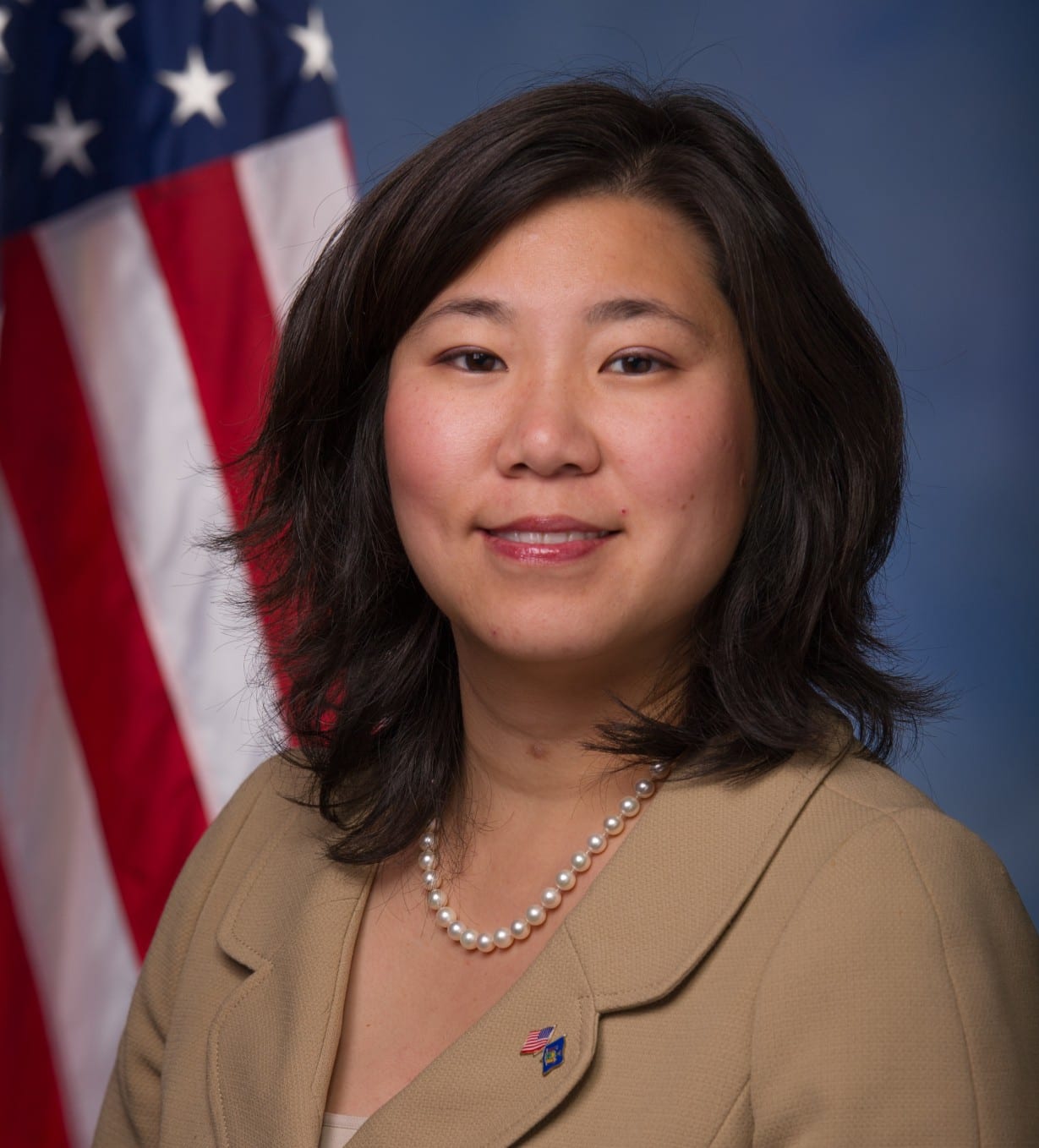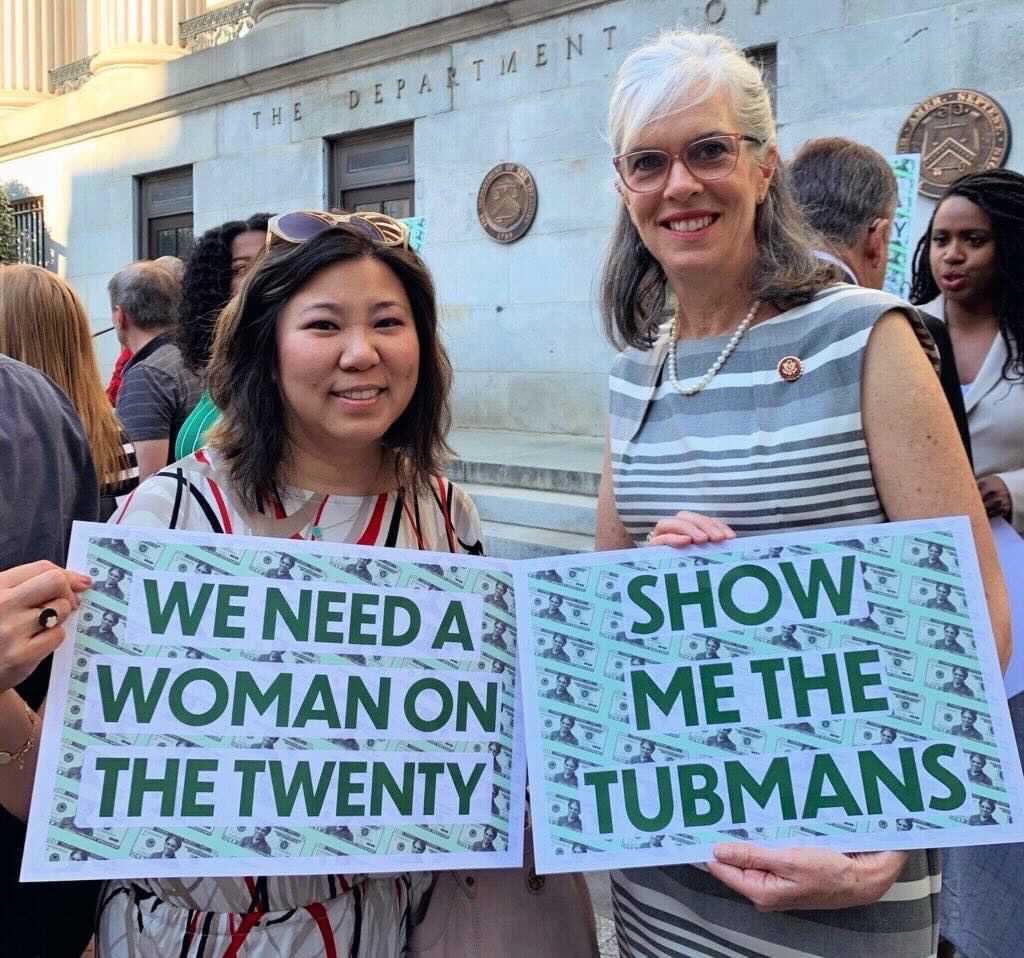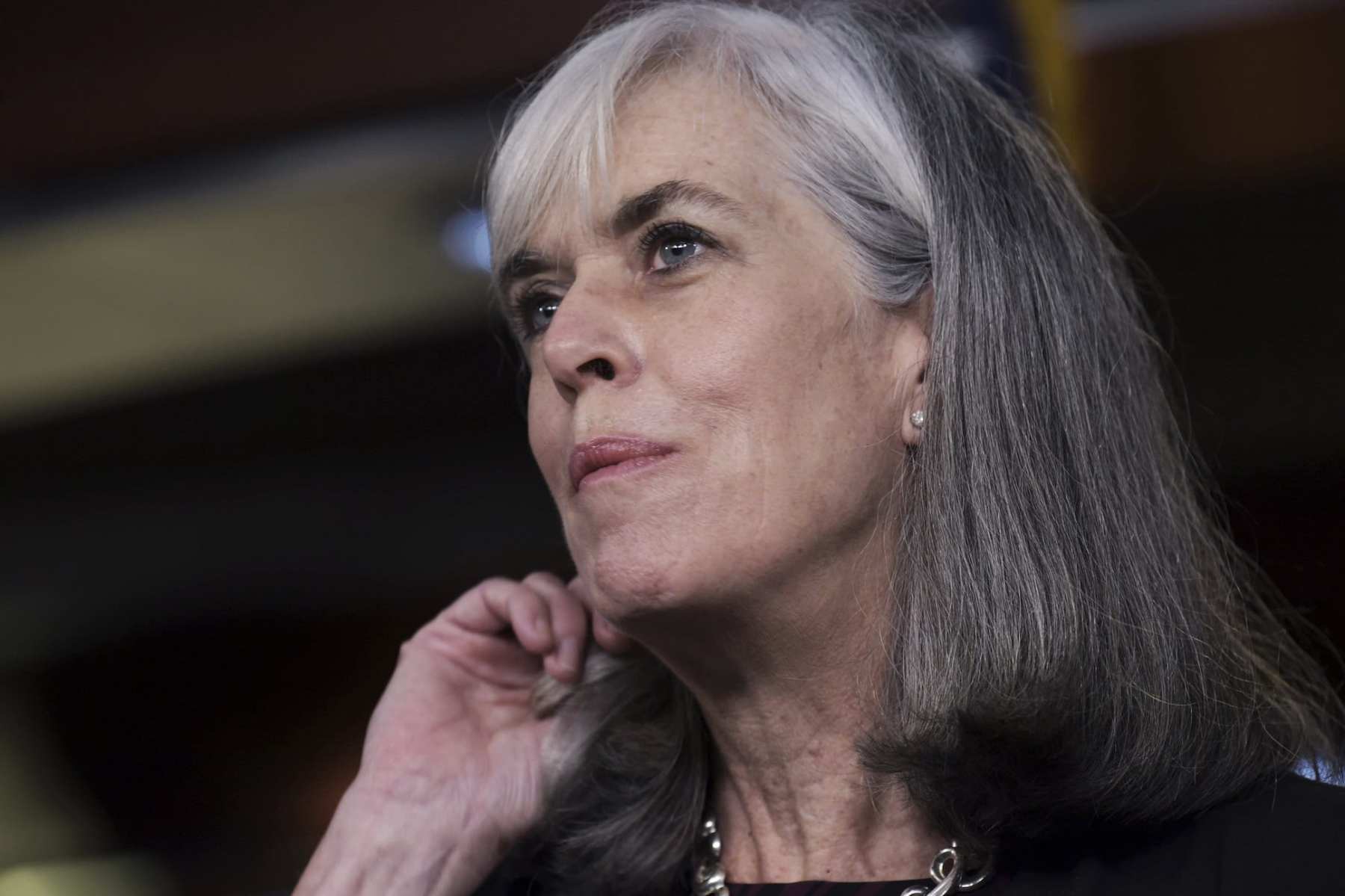As Rep. Grace Meng, New York’s first Asian-American member of Congress, pushed federal hate crime legislation in response to the violence against the AAPI community that has surged in the pandemic, among her most vocal supporters was Katherine Clark, the assistant speaker of the House of Representatives and a 57-year-old White woman representing the Boston suburbs.
Clark’s support was just the latest example of her allyship and the lawmakers’ sisterhood. The two have conducted town halls condemning anti-Asian violence, and Clark — whose Massachusetts district includes a sizable Asian American population — has been an active member of the Asian Pacific American Caucus since shortly after she was elected in 2013.
The bill, co-sponsored by Sen. Mazie Hirono of Hawaii and already approved by the Senate, passed the House on Tuesday and is headed to President Joe Biden for his signature.
Meng said Clark was among the members of Congress with a proven record of commitment to AAPI issues. In a joint interview this week with The 19th, Meng and Clark discussed their unlikely friendship, the value of allyship and supporting the political leadership of women and mothers.
“Some members, because of the events of the last few months, have sort of newly engaged,” Meng said. “Traditionally, the AAPI community often feels invisible and doesn’t feel like our concerns are being heard at the table of leadership. We don’t have an Asian American in the highest levels of leadership. And so we rely on Katherine as a leader, to be our voice.”
Clark said she sees her leadership role as an opportunity to lift up the work and leadership of Meng and her Asian-American colleagues in Congress.
“She is constantly putting the pieces together for those of us who are not in the Asian-American community ourselves, but want to be allies. One of the really excellent surprises about being in Congress was meeting Grace. It is a friendship that I know will last long beyond our tenure and I’ve learned so much from her … As a White woman, getting to know Grace and her family and hear her experiences and that of her community has just given me an insight that I don’t think I would have had.”
Meng and Clark caught each other’s attention soon after they both arrived to Congress. Meng was elected first, in 2012, and Clark in December of 2013 in a special election.
As Meng recalled, Clark was the newcomer everyone wanted to befriend. Meng, 45, said she was drawn to Clark’s leadership style and personality, and the two bonded over their shared experience as mothers. Clark, 57, has often offered advice on balancing politics and motherhood.
“There are days when you’re just feeling guilty, when you feel like you’re not doing a good enough job as a mom, and it’s not always about finding the exact answers, but finding a source of comfort and encouragement and guidance, which is what Katherine provides.”
Clark calls Meng “a model” for women juggling parenthood and public office.

“I wish I had known Grace when I was on the school board committee and in the statehouse,” Clark said. “… She is an incredible leader in our caucus and she is Facetiming her children and helping them with homework. I encourage so many parents who are thinking of running for Congress to talk to Grace.”
Clark sought Meng’s counsel in deciding to run for House leadership earlier this year, and Meng was among her main supporters for assistant speaker.
“Katherine is someone who people in the caucus view as not just a friend, but also as a mentor,” Meng said. “Also, as a woman, besides Speaker (Nancy) Pelosi, there would’ve been no other woman’s voice at the leadership table in our caucus.”
Both describe each other as uniters, and have leaned on each other and their friend circle in Congress — which also includes Democrats Rep. Lois Frankel of Florida, Rep. Cheri Bustos of Illinois, Julia Brownley of California and Annie Kuster of New Hampshire — particularly over the last year in the pandemic.
That friendship has helped see them through times of crisis. When violence came to the U.S. Capitol during the January 6 insurrection, the pair were frantically searching for each other during the chaos. Clark was not in the building, but learned Meng and Frankel were trapped together.
“We were trying not to talk on the phone, we had muted the TV, we actually weren’t telling people where we were,” Meng recalled. “Katherine was one of the few people we actually told where we were, because we trusted her. She kept checking in on us that day, and in the days afterward, as well.”
The two both said the experience has brought them even closer together.
“That day makes you take stock of the people in your life, like Grace. It just deepens the appreciation for the work she does and it’s really just such a joy to be her friend.”

As the threat to Asian Americans has become more visible, Meng and Clark have worked together to move those concerns to the forefront and steer Congress’s response.
Meng points out that Clark is not just a member of the Asian Pacific American Caucus; she attends most meetings and is engaged on issues.
“It’s Katherine’s voice at the table that has helped speed up the process,” Meng said.
Clark tapped Meng to meet virtually with her district to meet with her Asian constituents about the uptick in violence during the pandemic.
“To have that understanding and Grace’s seal of approval and our friendship gives me a credibility that I might not have otherwise,” Clark said, adding that their relationship has helped her better understand harmful stereotypes against Asian Americans and the history of discrimination against the community in areas ranging from health care to income.
“Grace is tremendously skilled at bringing people together and consistently brings to life the importance of electing diverse women,” Clark continued. “We talk about intersectionality, but Grace lives it and that sort of personal impact has made me even more committed to making sure that we are truly having equity in every piece of work that we do.”






